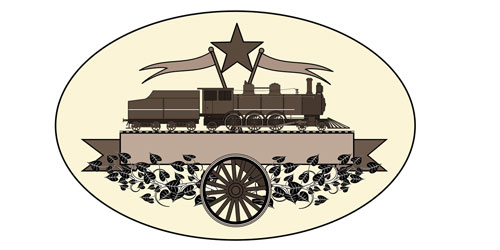《论语诠解英文版》——Chapter XV'卫灵公" (Weilinggong)
[15- 1] 卫灵公问陈千孔子。孔子对曰: " 俎豆之事,则 尝闻之矣; 军 旅之事, 未之学也。“ 明日遂行。
15.1 Duke Ling of Wei asked the Master about military tactics. The Master said, "I have heard all about sacrificial ceremonies, but I know nothing about military tactics." On the following day, the Master left the State of Wei.
[Comment] "陈 zh的 " is used interchangeably with "阵 zh的 " to mean "military formation and tactics." "俎 zu" means "vessels for sacrificial cer emonies." However, in this context, it implies the "sacrificial ceremonies" themselves.
[Reading] Duke Ling of Wei, because of his devious actions and his ec centric character, was not Confucius'favorite prince. But this is not the main reason that Confucius pretended to know nothing about military tactics when Duke Ling of Wei asked him. As a pacifist, Confucius was opposed to war, militarism, and violence. He only believed in running a country with moral principles and actions of benevolence. This approach should also ap ply to relations between countries. That is why, on the following day, he left the State of Wei immediately.
[15- 2] 在陈绝粮,从 者病,莫能兴。子路惺见曰:“ 君子亦有穷乎? ” 子曰: “君子固穷,小人穷斯滥矣。"
15.2 While in the State of Chen, the Master and his disciples ran out of pro visions. All his followers were so hungry that they fell ill. Dismayed, Zilu came to the Master, saying "Does the noble man also need to endure such hardship?" The Master said, "Although the noble man may sometimes have to endure dire straits, he will remain composed. But the mean man, when in such a situation, will become undisciplined."
[Comment] " 兴 xTng " means "to get up" while ' 倡 yu n" connotes "resentment." "固穷 g u qi6ng" describes a person "stuck in poverty yet not losing integrity." " 滥 Ia n" literarily means "to spill over" but in this context, it implies "unbridled conduct."
[Reading] In his conversation with Zilu, Confucius discussed the funda- mental differences between "君子 Junzi" and "小人xiaoren" (the inferior man). One such difference is calmness of mind and appearance displayed under any circumstances, particularly in dire straits, which the Master and his disciples experienced in the State of Chen. Because of this, Confucius was not happy with Zilu's response. As we see in Chapter XIV, Confucius sometimes seemed to be annoyed by Zilu's actions, even though he was one of his major disciples.
[15- 3] 子曰: "赐也!女以予为多学而识之者与?”对曰: ”然, 非与?”曰: “非也,予一以贯之。"
15.3 The Master said, "Zigong, do you not think I am an erudite man with a good memory?" Zigong answered, "Yes. It seems that way, doesn't it?" The Master said, "No. I am only good at deduction in the sense that I understand the nature of things. In this way, I learn about everything."
[Comment] "识 zh]" means "to memorize, to remember."
[Reading] "一以贯之 y叩 g ua n zhT''is an important concept by which, as Confucius told Zigong in this section, he was able to learn about everything. But it is hard to translate this concept into English because it is too abstract. The nearest thing we can get might be "deductive reasoning" or "logical deduction," a part of the Way of learning that underlies all forms of learning. As Confucius said, since he understood the nature of things, that is, the basis and foundation of knowledge, he was able to learn about things.
[15- 4] 子曰: ”由!知德者鲜矣。"
15.4 The Master said, "You (Zhong You), indeed there are very few who know virtue."
[Comment] "由y6 u" refers to "仲由 zho ng y6u ," whose courtesy name was "子路 zT l u." " 鲜 xia n" means "rare."
[Reading] Confucius lamented the fact that although virtue was essential to one's moral development, only few, including rulers, knew it. He truly wished that all his disciples would learn to be virtuous and would become "君子 Junzi".
[15- 5] 子曰: “无为而治者其舜也与?夫何为哉?恭已正南面而巳矣。"
15.5 The Master said, "Shun may be the only one who was able to govern efficiently without having to attend to state affairs. What did he actually do? He did nothing but sat on his royal seat regally and majestically."
[Com ment] " 无 为 wu w 纣 means "non-action, doing nothing." In the context of this passage it implies "a prince does not need to attend to state affairs personally." "治 zhl" connotes "good government, a good society" while " 恭已 go ng jT" translates as "being reverent and grave as a result of self-cultivation and pursuing virtue."
[Reading] This is indeed an interesting passage in which Confucius talked about "无为而治 wu w创 e r zhl" (literally: ruling without intervention). But Confucius'idea of " 无为而治" should not be confused with that of Lao Zi's. Given the context, it seems that what Confucius meant by " 无为而治” has these implications. First, the ruler should achieve a level of virtue and benevolence through moral self-cultivation. He rules by the principles of moral disposition and ethical conduct. As such, he enlightens and cultivates the people by developing their virtuous deeds and the rites of propriety. Just as Confucius stated in Chapter XIII, the morality of a ruler is "like the wind and the morality of the people is like the grass. When the wind blows, the grass bends accordingly." (Section 2, Chapter XIII) In this way, a sage ruler like Shun would be able to rule without intervention: "He did nothing but sit on his royal seat regally and majestically."
[15- 6] 子张问行。子曰: “ 言 忠 信, 行笃敬, 虽蛮貊之邦, 行矣。言不忠信, 行不笃敬, 虽州里, 行乎哉? 立则见其参千前也, 在舆则见其倚千衡也,夫然后行。"子张书诸绅。
15.6 Zizhang asked about how he could be successful wherever he goes. The Master said, "When you speak, be sincere and truthful; when you act, be serious and attentive. Thus, even if you are in the region of Manmo, you will be appreciated. But if you are not sincere and truthful when you speak, if you are not serious and attentive when you act, even if you are in your own hometown, you will not be successful. When standing, you should envision in front of you these qualities. When in a carriage, you should envision these qualities carved on the cross-bar. Only this way may you be successful wherever you go." Zizhang wrote the Master's advice on his sash.
[Comment] "行 xf ng" implies "smooth-sailing" while '蛮 貊 ma n mo" is an ancient way to refer to "ethnic minorities." ' 蛮 ma n" inhibited in the south and "貊 mo" in the north. " 州里 zho u IT" refers to the structure of neighborhoods in the Zhou Dynasty, with "五党 WU 啦 ng" as one "州zh6u ." Each " 州 zh6 u" contained two thousand and five hundred house holds. Each "里 IT" had twenty-five households. Later on, " 州里 zho u IT" was used to refer to "hometown" or" homeland." " 衡 h 的 g" means "cross-bar" on a carriage while "绅 s h的 " connotes "sash."
[Reading] For Confucius, the key to success is, among other important qualities, sincerity and truthfulness. Zeng Zi, one of Confucius'leading disciples, was quoted as saying, "I daily examine myself to see: whether I may not have been faithful and dutiful enough when I do things for others; whether I may not have been truthful enough to my words when I interact with my friends; and whether I may not have practiced what my teacher has instructed me to do." (Section 4, Chapter I) What is interesting about this passage is that Confucius believed that even when one is in a so-called barbaric region such as Manmo, one will be appreciated if he speaks with sincerity and truthfulness. This implies that even so-called "less civilized people" possess and therefore appreciate such fine qualities.
[15- 7] 子曰: “直哉史鱼!邦有道,如矢;邦无道,如矢。君子哉速伯玉!邦有道,则仕;邦无道,则可卷而怀之。"
15.7 The Master said, "Indeed Historiographer Yu was upright and honora ble! When the government was good, his speech and actions were as straight and forceful as an arrow. When the government was bad, his speech and ac tions were still as straight and forceful as an arrow. Likewise, Qu Boyu was also a man of true virtue! When the government was good, he would serve in office. When the government was bad, he would conceal his talents."
[Com ment] " 史 s hT" is the tile of a position. " 鱼 yu" was a minister in the State of Wei. His name was "鳍 qi u ," with a courtesy name of "子鱼 zT yu." "矢s hT" connotes "arrow" while "如矢 ru shT " alludes action that is "as straight as an arrow." " 速 伯 玉 q u b6 yu" was a minister in the State of Wei. His name was '媛 a i." "卷 jua n" connotes "to collect" and "怀 h u6 i" suggests "to conceal."
[Reading] Confucius was profoundly impressed by the exemplary quali ties displayed both by Historiographer Yu and by Qu Boyu, a minister in the State of Wei. Both were upright, honorable, sincere, truthful, and faith ful. However, Historiographer Yu remained straight and forceful whether the government he served was good or bad, never bothering to conceal his thoughts. Qu Boyu, on the other hand, knew when to advance and when to conceal his talents. Confucius regarded him as more of a "君子J unz i", a man of true virtue.
[15- 8] 子曰:“ 可与言而不与之言,失人; 不可与言而与之言,失言。知者不失人,亦不失言。"
15.8 The Master said, "When you could talk with someone, but you did not do so, you missed the opportunity to communicate with a worthy man. When you were not supposed to communicate with a man, but you did so, you erred badly. A man of wisdom would neither lose worthy friends nor err by miscommunicating."
[Comment] "知zh l" is used interchangeably with "智 zhl" to mean "in telligence, knowledge, learning."
[Reading] Confucius regarded the Middle Way ( 中道 Zhongdao) as perfect virtue of the supreme level. In Chapter XIII, he lamented the fact that "it is hard to find men in pursuit of the Middle Way with whom I may share my thoughts." (Section 21, Chapter XIII) Nevertheless, he cautioned that even if "I have to relate myself to the fervent and the prudent," he would take the Middle Way by neither advancing too proactively nor being overcautious with discerning judgment. He believed a man of wisdom knows how not to go to extremes when interacting with friends: he "would neither lose worthy friends nor err by miscommunicating."
[15- 9] 子曰: “志士仁人,无求生以害仁,有杀身以成仁。"
15.9 The Master said, "Honorable men of true virtue will not blemish their virtue merely to save their lives. Rather, they will sacrifice their lives to up hold their virtue."
[Reading] For Confucius, "仁 Ren" was so important that he believed "君子Junzi", the noble men of true virtue, should never allow anything to tarnish their virtue. They should always be ready to honor their virtue with their lives. "杀身成仁s ha shen ch却 g r的 " (sacrificing one's life to uphold his virtue) has thus become a holy motto for the Chinese over the past two and a half millennia.
[15- 10] 子贡问为仁。子曰:“ 工欲善其事,必 先利其器。居是邦也, 事其大夫之贤者,友其士之仁者。"
15.10 Zigong asked how to develop virtue. The Master said, "When an ar tisan wishes to do his work well, he first sharpens his tools well. When you reside in a state, you should enter into deferential service with the most wor thy among ministerial-level officials and befriend the most virtuous among its learned scholars."
[Comment] "士s hl" , in this context, alludes to those who had a position of certain social status and who occupied the lowest status in the aristocracy during the Shang and Zhou Dynasties.
[Reading] In this section, Confucius advised his disciples that to be men of virtue, they would need to make friends with men of true virtue, in addition to practicing their own moral self-cultivation. Virtue should be both internal ized and externalized. In Chapter VI, for example, Confucius said, "He is a noble man of true virtue who, while seeking to establish himself, also sees that others are established; while striving to succeed himself, also sees that others succeed." (Section 30, Chapter VI)
[15- 11] 颜渊问为邦。子曰: “行夏之时,乘殷之辂,服周之冕, 乐则韶舞。放郑声,远俀人。郑声淫,俀人殆。"
15.11 Yan Yuan asked about how to govern a state. The Master said, "Use the calendar of Xia, drive the carriage of Yin, wear the ceremonial cap of Zhou, and play the Shao music of Emperor Shun. It is imperative to forbid the music of the State of Zheng and to stay away from sycophants. The mu sic of Zheng is sensual and adulators are treacherous."
[Comment] "行夏之时 xf ng xia zhT shf" translates as "to use the calendar of the Xia Dynasty." " 辂 lu" connotes "carriage" while " 服周之冕 fu zhou zhT mian" suggests "to wear the ceremonial cap of the Zhou Dynasty." " 韶shoo" refers to the music of Shun, which Confucius believed to be a perfect type of music. "放 fa ng" means "to forbid, exclude, abandon.""郑声 z陡 ng sheng" refers to "the music of the State of Zheng." It has a wide variety and people are easily addicted to it. As a result, Confucius criticized it as being lewd. " 远 yua n" connotes "to stay away, keep a distance."
[Reading] The two most important concepts in Confucianism are: "仁 Ren" and "礼 Li " (the rules of propriety). The supreme order of " 礼 Li ", accord ing to Confucius, was established by the sage kings of the Xia, Shang, and Zhou Dynasties. To perform " 礼 Li " is first to restore the now corrupted practice of "礼 Li " in the vassal states. Because of this, Confucius advocated “克己 复礼 ke jT fu IT" (to restrain oneself and conduct oneself in accordance with the rites of propriety), which he regarded as true virtue. (Section 1, Chapter XII). Part of the rules of propriety is "乐 Yue" (music). Confucius' interest in and love of music was well-known. For example, when he was in the State of Qi, after enjoying the Shao music there, "for a long time the Master did not know the taste of meat." He said, "I never realized music could have reached such a supreme level of excellence." Confucius was in love with music because it helps shape one's moral character. That is why he was opposed to the music of the State of Zheng, as it was sensual and debauched, and hence detrimental to one's moral development.
[15- 12] 子曰: “人无远虑,必有近忧。"
15.12 The Master said, "If a man is not farseeing, he will find problems near at hand."
[Reading] While Confucius urged his disciples to perform virtuous deeds, to match their words with actions, and to be cautious in speech, he also advised them to be farseeing and forethoughtful in a society of sociopolitical chaos.
[15- 13] 子曰: ”已矣乎!吾未见好德如好色者也。"
15.13 The Master said, "Alas, gone. It is all over! I have never seen anyone who desires virtue as he desires beauty."
[Comment] "已yT" means "gone, over."
[15- 14] 子曰:" 臧文仲其窃位者与!知柳下惠之贤而不与立也。"
15.14 The Master said, "Zang Wenzhong was a man who, in power, did not attend to his duties. He knew Liuxia Hui was a man of virtue, but did not as sign any high position to him."
[Comment] "臧文仲 za ng w的 zho ng" was also known as "臧孙辰 za ng sun c h的 " His surname was "臧孙 za ng sun," and his given name " 辰 c h的 .”“ 文仲w却 zho ng " was his posthumous title. He was a renowned minister in the State of Lu. "柳下惠 li u xia hul" was also known as "柳下季 li u xia jl," with a courtesy name of " 子禽 zT qfn." He was from a noble family in Lu. " 窃位 q ie w 创" means "being in power and not incompetent" while " 立 11" is used interchangeably with "位 w创" to mean a position.
[Reading] Confucius did not seem to like Zang Wenzhong, not because he was not a capable minister, but rather because he believed that Zang Wen zhong failed to perform the rules of propriety and set a bad example for the people. For example, in Chapter V, Confucius said, "Zang Wenzhong kept a big turtle in his house, which featured fine brackets elaborately carved in the shape of hills and pillars above the beams lavishly ornamented with the im ages of duckweed. What was he smart about?" According to the Zhou rules of propriety, such a big turtle was only used by the royal court for prophecy. Furthermore, Zang Wenzhong built his private residence in the imperial architectural style that was officially prescribed only for the royal court. In doing so, Zang Wenzhong violated the rites of propriety. Moreover, although he knew Liuxia Hui was a man of virtue, he intentionally did not assign any high position to him, thus preventing him from serving the country. For Confucius, this was a mean act.
[15- 15] 子曰: "躬自厚而薄责千人,则远怨矣。"
15.15 The Master said, "If a man reflects more on himself and requires less from others, he will be able to avoid resentment from others."
[Reading] Confucianism is an all-embracing humanism; it is about human beings. More importantly, it is about how to handle human relations. The moral principle it upholds is "和而不同 he er bu t6ng" (a harmonious hu man co-existence in which common ground is sought while differences are respected). Confucius urged his disciples to reflect more on themselves and require less from others. That is why he warned Zigong, one of his disciples, "Zigong, do you think you are really better than others? I do not have any leisure to judge people." (Section 29, Chapter XIV)
[15- 16] 子曰:“ 不曰`如之何, 如之何'者,吾末如之何也已矣。"
15.16 The Master said, "If a man never asks'what should I do with this, what should I do with this?', then I really do not know what I can do with him."
[Comment] "如之何 ru zhT h令 means "what to do?" For Confucius, if stu dents are not seriously and genuinely concerned about the deeper questions of life, it is very hard to teach them anything of value.
[Reading] This section seems to echo what Confucius discussed in the previous section: "If a man is not farseeing, he will find problems near at hand." A man of wisdom, according to Confucius, knows how to anticipate the unexpected and make emergency plans for it accordingly. Such a person always asks himself before starting to do something new and unfamiliar: How much do I know about it? What should I do to handle it? And so on.
[15- 17] 子曰: “群居终日,言不及义,好行小慧,难矣哉!”
15.17 The Master said, "Indeed, it is hard to instruct those who would spend a whole day together, chatting about everything except for righteousness, and indulging themselves in bragging about some shallow wisdom!"
[Reading] Confucius could not tolerate mean minds and small wisdom. Life is short. One should live life to the fullest by dedicating himself to real learning and cultivating himself in accordance with "1 二 Ren" and the rites of propriety.
[15- 18] 子曰: “君子义以为质,礼以行之,孙以出之,信以成之。君子哉!”
15.18 The Master said, "The noble man takes righteousness as the funda mental principle, which he performs in accordance with the rites of propri ety, exercises it in humbleness and fulfills it with truthfulness. Such one is, indeed, a truly noble man."
[Com ment] " 孙xun" is used interchangeably with "逊 xun" which means "modest, humble."
[Reading] Once again Confucius emphasized the importance of virtue, righteousness, moral principle, humility, truthfulness, and the rites of pro priety that one should diligently exhibit in order to advance his moral self cultivation.
[15- 19] 子曰: “君子病无能焉,不病人之不已知也。"
15.19 The Master said, "The noble man only worries about his want of abil ity. He does not worry if others do not recognize him."
[Com ment] " 病 blng" is used as a verb to mean "to worry about."
[Reading] This passage is an echo of Section 30 of Chapter XIV in which Confucius said, "I do not worry that others do not know me. I worry that I do not possess any ability to make people know me." Similar sayings are also seen in Section 16 of Chapter I, where Confucius remarked, "One should not worry if others do not know and therefore do not understand him. Instead, one should worry if he possesses no learning and ability with which to understand others."
[15- 20] 子曰: “君子疾没世而名不称焉。"
15.20 The Master said, "The noble man hates that his name would be forgot ten after his death."
[Comment] "疾 jf" means "to dislike, hate" while "没世 mo sh1 "connotes "after death." "称 c he ng" suggests "to be praised."
[Reading] This should not be interpreted as Confucius'being anxious for fame not only in his lifetime, as well as far beyond. What Confucius meant is that one should diligently cultivate himself by performing virtuous deeds, exhibiting ethical conduct, and adhering to the rules of propriety. In doing so, one's virtue and benevolence will benefit others and, therefore, will last in the fond memory of the generations to come.
[15- 21] 子曰: “君子求诸己,小人求诸人。"
15.21 The Master said, "The noble man seeks to perfect himself by self reflection. The mean man seeks self-satisfaction by blaming others."
[Reading] This passage is a follow-up on Section 15 of this chapter.
[15- 22] 子曰: “君子矜而不争,群而不党。"
15.22 The Master said, "The noble man is dignified but does not dispute. He has friends but does not form a clique."
[Com ment] "矜 jTn" means "dignified, stately" and" 党 da ng" connotes "form a clique."
[Reading] "君子Junz i" (the noble man of true virtue) respects himself the same way he respects others. As a man of moral principle and virtue, he is always on respectful and friendly terms with others. At the same time, he does not seek to associate himself with any clique or faction.
[15- 23] 子曰: “君子不以言举人,不以人废言。"
15.23 The Master said, "The noble man does not endorse a man only be cause of what he has spoken, nor does he scorn a man's good idea simply because of how the man behaves in life."
[Com ment] "举 ju" means "recommend." "废 f创" connotes "disregard, put aside."
[Reading] Like in the preceding sections, here Confucius reiterated his understanding of what a "君子 Junzi" should be like: a noble man of true virtue, proprieties, moral disposition, humility and humbleness, self-culti vation, caution in speech, self-respect, sincerity and truthfulness, being on deferential terms with others, never forming a clique, etc. On top of these, he is a man of integrity and discerning judgment.
[15- 24] 子贡问曰: “ 有一言而可以终身行之者乎?” 子曰: “其恕乎!己所不欲,勿施千人。"
15.24 Zigong asked, "Is there one single word that we may take as a life long guiding principle?" The Master said, "It is reciprocity. What you do not want done to yourself, do not do to others."
[Comment] " 一 兰口 y1 yon" means "一子 y1 z1" (one word).
[Reading] At the core of Confucian humanism is reciprocity. Confucius admonished, "What you do not want done to yourself, do not do to others." This thinking bears similarity to the Christian Golden Rule, "Do to others as you would have them do to you" (Luke 6:31, NIV), although the Confucian maxim was created several centuries earlier. It is interesting to note that Confucius'critical thinking begins with moral self-cultivation, whereas the Christian Golden Rule starts from others onto whom one would project his own wish.
[15- 25] 子曰:“ 吾之千人也,谁毁谁誉?如有所誉者 ,其有所试矣。斯民也, 三代之所以直道而行也。"
15.25 The Master said, "Have I ever slandered anyone? Have I ever praised anyone? If I have praised someone, it is because he deserves it after I have carefully examined him. He must be one of those who were enlightened by the Way of the Righteousness and endorsed by the sage kings of the three great dynasties of Xia, Shang and Zhou."
[Com ment] "试 sh1" means "test."
[Reading] This passage shows Confucius'sincerity and truthfulness in so cial interactions. When he praised or criticized someone, he did it for good reasons based on moral principles and sound judgment. He did it, so he hon estly believed, in a manner enlightened by "the Way of the Righteousness and endorsed by the sage kings of the three great dynasties of Xia, Shang and Zhou."
[15- 26] 子曰:“ 吾犹及史之阙文也。有马者借人乘之,今亡矣夫!”
15.26 The Master said, "I may still come across the writings in ancient documents that were preserved and that were uncommented on because their authenticity seems to remain questionable, just like those who had a horse would lend it to others for tuning because he himself did not know how to train it. Alas, long gone are such things!"
[Comment] "史之阙文s hT zhT que w 的 " translates as "writings preserved in ancient documents that were preserved and that were uncommented on because their authenticity seems to remain questionable."
[Reading] Confucius was impressed by the sincerity and truthfulness of serious historians in ancient times. If they were uncertain of some historical facts, they would rather make clear that they lack the knowledge or informa tion to verify these facts than try to make up stories about them. He lament ed the fact that such attitudes of sincerity and truthfulness are long gone.
[15- 27] 子曰: “巧言乱德。小不忍,则乱大谋。"
15.27 The Master said, "Beguiling words tarnish virtue. Lack of tolerance in small matters disrupts big plans."
[Reading] This is a popular saying of wisdom that has circulated in Chinese culture for more than two millennia. Confucius believed that a man of true virtue is more concerned with how he could contribute to society and "All under Heaven" rather than with personal gain. In other words, he would not miss the forest for the trees. When necessary, he would retreat in order to re advance, just like the wise and virtuous man Qu Boyu who, when the gov ernment was good, "would serve in office." When the government was bad, "he would conceal his talents." (Section 7 of this chapter)
[15- 28] 子曰: “众恶之,必察焉;众好之,必察焉。"
15.28 The Master said, "If everyone dislikes him, it is imperative to investi gate the situation. If everyone loves him, it is also imperative to investigate the situation."
[Reading] Confucius believed a "君子J unzi" does not go with the flow. Rather, he remains a critical-thinking person and relies on his own discern ing judgment, which is the end result of moral self-cultivation and perform ance of the rules of propriety.
[15- 29] 子曰: “人能弘道,非道弘人。"
15.29 The Master said, "It is men that make the Way great. It is not the Way that makes men great."
[Com ment] " 弘 h6 ng" means "to promote, advocate, enhance."
[Reading] It is indeed imperative to know this understanding of Confucius with regard to the Way. Confucius emphasized the importance of human willpower in cultivating oneself. Great is the Way, but men should make all efforts to improve themselves before they can improve themselves with the Way. This is another way of saying that the Way is not an absolute residing on the horizon that recedes as one tries to approach it. Rather, it should be an internalization and externalization of one's true virtue and moral disposi tion through self-cultivation. In this sense, men partake of the Way and help make it great.
[15- 30] 子曰: “过而不改,是谓过矣。"
15.30 The Master said, "If one errs and does not correct it, it is indeed a real mistake."
[Reading] In "An Essay on Criticism," Alexander Pope (1688-1744) wrote, "To err is human, to forgive divine." Confucius believed, however, that for giveness is justified only when the offender first corrects his errors and then makes efforts to avoid future mistakes.
[15- 31] 子曰:“ 吾尝终日不食,终夜不寝,以 思,无益,不如学也。”
15.31 The Master said, "I used to not eat for the whole day and not sleep for the whole night in order to focus on thinking, but nothing came out of it. It is better to learn."
[Reading] This passage echoes what Confucius said in Chapter II: "Learn ing without thinking only makes a man confused and perplexed. Thinking without learning only lands a man in quandary." (Section 15, Chapter II) By reiterating the same theme, Confucius emphasized the importance of a bal anced relationship between learning and thinking. A noble man of true virtue combines learning and thinking in a meaningful way that allows them to complement each other.
[15- 32] 子曰: “君子谋道不谋食。耕也,俀在其中矣;学也,禄在其中矣。君子忧道不忧贫。"
15.32 The Master said, "The noble man pursues truth rather than clothing and food. Even farmers sometimes suffer from want. Learning, however, will bring about emolument. The noble man is anxious lest the Way fails to work. He is not anxious if poverty would haunt him."
[Com ment] '才妥 n色i" indicates "starvation."
[Reading] As Confucius argued, pursuit of the Way is more important than merely making a life. While learning will yield profits, Confucius was more concerned about whether he was diligent enough in pursuing the Way and applying it to solve real-life problems.
[15- 33] 子曰: “知及之,仁不能守之;虽得之,必失之。知及之, 仁能守之,不庄以位之,则民不敬。知及之,仁能守之,庄以位之, 动之不以礼,未善也。"
15.33 The Master said, "If one can grasp it with his wisdom but is unable to maintain it with his virtues, even if he were to attain it, he would lose it. If his wisdom is sufficient for him to obtain it and his virtue enables him to maintain it, yet he does not govern his people with sincerity and earnestness, the people will not revere him. If his wisdom is sufficient for him to obtain it, his virtue enables him to maintain it and he governs his people with sin cerity and earnestness, yet he does not follow the rules of propriety while employing the service of the people, that will not work either."
[Comment] " 知 zh1" is used interchangeably with " 智 zh]" to mean "intelligence, knowledge, learning." "不庄以位之bu zhuang yT 11 zhT" implies "governing people but not in a serious and grave manner."
[Reading] In this section, Confucius discussed the importance of the inter active relationship between wisdom, virtue, sincerity, earnestness, and the rules of propriety. All of these are required qualities if one desires to become “ 君 子 J unz i". It is important to note that to be a man of true virtue, one should also interact with people in a deferential manner, which Confucius called "earnestness."
[15- 34] 子曰: “君子不可小知而可大受也,小人不可大受而可小知也。"
15.34 The Master said, "The noble man should not be tested with small mat ters, rather they should be entrusted with important commissions. The mean man should not be entrusted with important commissions, rather they should be tested with small matters."
[Reading] In this section, Confucius urged that people should be assigned tasks according to their ability and talent, that is, "知人善任zhT 伦 n shan 心 n ." " 君 子 J unzi" are noble men of true virtue and ethical conduct, and they should therefore be entrusted with missions of great importance, where as people of limited capacity can only be assigned trivial and unimportant tasks.
[15- 35] 子曰: “民之千仁也,甚千水火。水火,吾见蹈而死者矣, 未见蹈仁而死者也。"
15.35 The Master said, "Virtue is far more essential to men than water or fire. However, I have seen men die from treading on water and fire, but I have never seen men die from treading the path of virtue."
[Reading] Confucius repeatedly emphasized the importance of acting out virtuous deeds and displaying moral qualities. He urged his disciples to pur sue " 仁 Ren" as an important part of their lives.
[15- 36] 子曰: “当仁,不让千师。"
15.36 The Master said, "When an opportunity of performing virtue arises, one should not be modest and should not yield it to others including his teacher."
[Com ment] " 当 仁 da ng r 的 " means "to experience some practices of vir tue" while " 让 ra ng" describes a person who is "modest, humble."
[Reading] So important is "1 二 Ren" that Confucius advised his disciples to pursue it even if they had to disagree with their teacher. Obviously, here "1 二Ren" has been abstracted by Confucius to become a moral yardstick against which to distinguish between right and wrong.
[15- 37] 子曰: “君子贞而不谅。"
15. 37 The Master said, "The noble man should firmly hold onto the Way of the righteous. He should not cling to truthfulness without principles."
[Comment] "贞 zhe n" means "to cling to the Way of the righteous." "谅 眙 ng" connotes "truthfulness."
[Reading] Confucius warned that merely clinging to truthfulness without moral principles is not "仁 Ren" . Moral principles are more important, and "君子Junzi" should cling to the Way of the righteous, which makes truthfulness meaningful. Otherwise, they may run the risk of relegating themselves to a lower level at which they focus on keeping their promise and accomplishing whatever they do yet do not exhibit moral principles. Confucius regarded such people as "opinionated mean people"( 胫胫然小人哉 ke ng keng ran XIOO ren ZOI).
[15- 38] 子曰: ”事君,敬其事而后其食。"
15.38 The Master said, "When serving his prince, one should be serious and deferential in performing his duties. Only after he has accomplished himself can he begin to discuss emolument."
[Comment] "食s h f" means "emolument." [15- 39] 子曰: “有教无类。"
15.39 The Master said, "Learning should be made accessible to people re gardless of their different classes."
[Com ment] " 类 庙" implies the "differences between statuses."
[Reading] Confucius was revered as the greatest teacher in Chinese cul ture, worshipped with such honorific titles as the "Extremely Sage Departed Teacher" ( 至圣先师 zhl s h的 g xian shl) and "Great Sage Teacher for Ten Thousand Ages" ( 万 世 师 表 wa n shl shT biao). He made education ac cessible to people from all walks of life and thus formed the foundation of education, in its real sense, that aimed to provide the guidelines for moral behavior in China for more than two millennia.
[15- 40] 子曰: “道不同,不相为谋。"
15.40 The Master said, "If men have different courses, they should not stay together in developing their career."
[Com ment] " 谋 m6 u" means "plan." [15- 41] 子曰: “辞达而已矣。"
15.41 The Master said, "Expressions would suffice if they can convey the meanmg.
[Reading] This remark is interesting in that Confucius was opposed to flowery language and overly-elaborate discourse. For him, the communicative function of a discourse was more important than empty rhetoric.
[15- 42] 师冕见, 及阶, 子曰: "阶也。”及席,子曰: "席也。" 皆坐,子告之曰: “某在斯,某在斯。“师冕出。子张问曰: ”与师言 之道与?” 子曰: ”然,固相师之道也。"
15.42 Mian the music master came to see the Master. When he was ap proaching the steps, the Master reminded him, saying "Here are the steps." When they walked close to the sitting mat, the Master said, "This is the sitting mat." When everyone was seated, the Master told him, "So and so have been here, so and so have been here." After Mian the music master left, Zizhang asked the Master, "Was this the way to communicate with the mu sic master?" The Master said, "Yes, this would be the original way to help the music master."
[Comment] "师冕s hT mian" means "musician" while "固 g u" connotes "originally."
[Reading] This section shows how sincere and deferential Confucius was in his interaction with the music master. He was careful and meticulous in abiding by the Zhou rules of propriety with regard to music and a music master.












